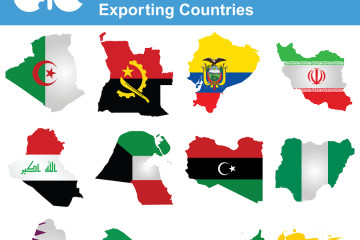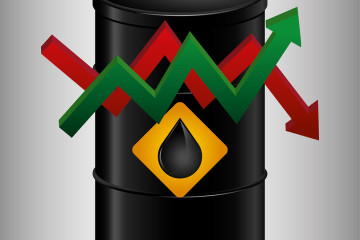Oil Climbs to Three-Week High as Refineries Increase Demand

©2015 Bloomberg News
NX9EOA6KLVR7
(Bloomberg) — Oil advanced on speculation U.S. refineries increased crude demand for a third week.
West Texas Intermediate futures rose 3.8 percent. Refinery utilization rates probably rose by 0.3 percentage points last week, according to a Bloomberg survey. An Energy Information Administration report Wednesday is expected to show that crude stockpiles rose by the smallest amount in six weeks while gasoline supplies fell. Libya’s Petroleum Facilities Guard halted oil shipments from Zueitina port indefinitely amid the escalating conflict between the country’s two rival administrations, putting exports at risk.
Oil has slumped more than 40 percent in the past year amid speculation a global glut will be prolonged. OPEC members continue to pump above their collective quota while U.S. output remains above 9 million barrels a day. Prices are near a bottom and global supplies look set to close the gap with demand amid declining output, according to Daniel Yergin, vice chairman at IHS Inc.
“Refiners are coming out of maintenance as quickly as possible, which is going to boost crude demand,” Phil Flynn, senior market analyst at the Price Futures Group in Chicago, said by phone. “We will all be keeping an eye on the crude output number. It’s almost as if we’re on a death watch, waiting to see it fall below 9 million barrels a day.”
Approaching Balance
WTI for December delivery rose $1.76 to settle at $47.90 a barrel on the New York Mercantile Exchange. It was the highest close since Oct. 9. The volume of all futures traded was 3.3 percent below the 100-day average at 4:42 p.m.
Gains eased after the American Petroleum Institute was said to report U.S. crude supplies rose 2.8 million barrels last week. WTI traded at $47.67 at 4:42 p.m.
Brent for December settlement increased $1.75, or 3.6 percent, to end the session at $50.54 a barrel on the London- based ICE Futures Europe exchange. The European benchmark crude closed at a $2.64 premium to WTI.
U.S. crude inventories probably increased by 2.5 million barrels last week, a Bloomberg survey showed before Wednesday’s EIA report. Supplies are more than 100 million barrels higher than the five-year seasonal average.
Gasoline led energy futures higher. U.S. stockpiles of the fuel probably dropped 1.25 million barrels in the week ended Oct. 30, according to the survey.
December gasoline futures rose 7.02 cents, or 5.1 percent, to close at $1.4455 a gallon. It was the highest settlement and biggest gain since Aug. 31. December diesel climbed 5.91 cents, or 3.9 percent, to end the session at $1.566.
Energy Stocks
The rise in crude and fuel futures bolstered energy company stocks. Exxon Mobil Corp. was up as much as 2.5 percent to $87.44, the highest since May, while Chevron Corp. surged as much as 3.9 percent to $98.64.
The number of active oil rigs in the U.S. fell by 16 last week to 578, a five-year low, oilfield-services company Baker Hughes Inc. said Oct. 30. Chevron said last week that it’s cutting about 10 percent of its workforce and scaled back its long-term production target even as the company posted third- quarter profit that surpassed analysts’ expectations.
“The combination of canceled projects and the decline in rigs are going to impinge on production,” Dan Heckman, senior fixed-income strategist in Kansas City, Missouri, at U.S. Bank Wealth Management, which oversees about $126 billion, said by phone. “The market is starting to factor a little of that into the price.”
Output Decline
U.S. crude output, which surged to the most in more than three decades this year, will retreat by about 10 percent in the 12 months ending April, according to Yergin, a Pulitzer Prize- winning author. Global oil supply and demand will begin to move into balance by late 2016 or 2017 and prices may rise to $70 to $80 a barrel by the end of the decade, he said in Tokyo on Oct. 30.
Libya’s Tripoli-based National Oil Corp. declared force majeure, a clause allowing it to suspend deliveries, on crude shipments from Zueitina. The country — where output has been curbed by conflict and protests — was the joint-biggest contributor with Saudi Arabia to an increase in OPEC production last month.
–With assistance from Grant Smith in London.
To contact the reporter on this story: Mark Shenk in New York at mshenk1@bloomberg.net To contact the editors responsible for this story: James Herron at jherron9@bloomberg.net; David Marino at dmarino4@bloomberg.net Carlos Caminada, Richard Stubbe







No Comment